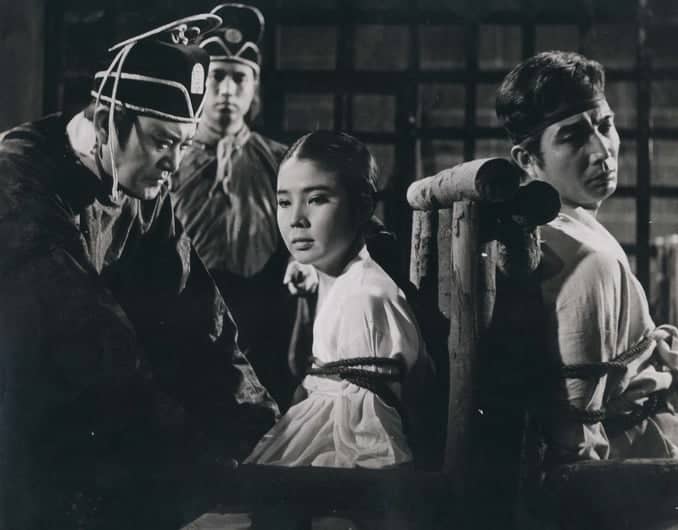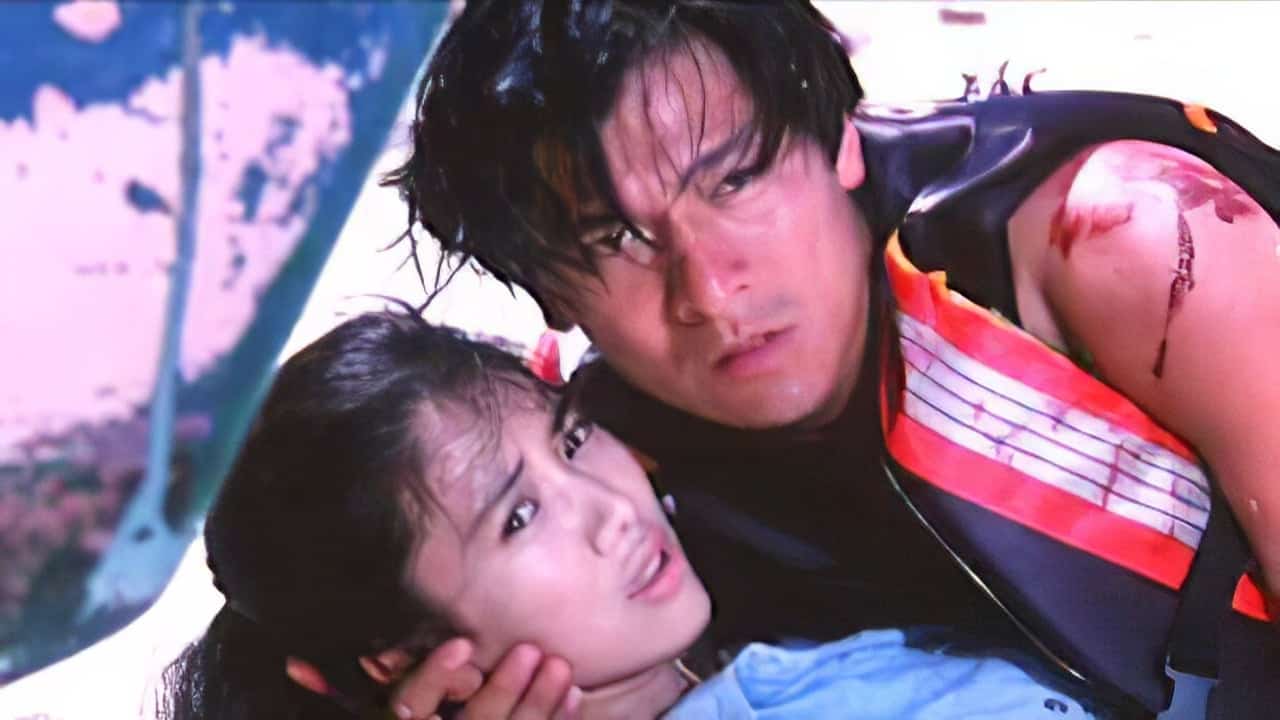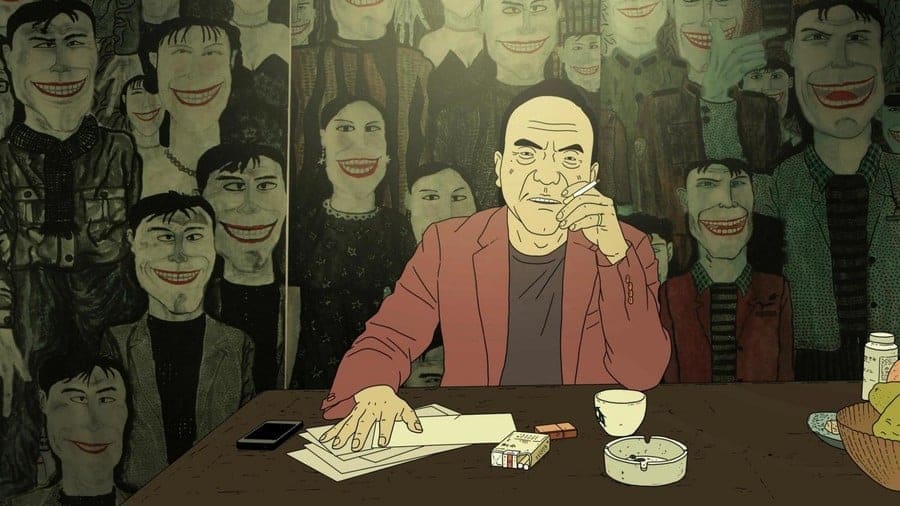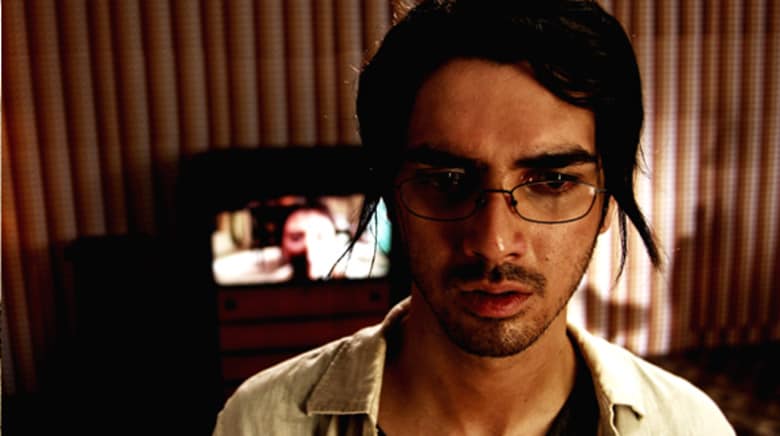The long and varied royal history of the Korean peninsula is a treasure trove of stories for cinema of the region, so much so that there's still lots of fresh and exciting tales coming out each year in tentpole productions featuring big-name stars. While the tales of heroism, politics, greed, mistakes and love have been told before and continue to be told, it was Shin sang-ok's “Eunuch” that first shed light to the plight of women in the royal household and introduced two key elements into its narrative: lust and royal secrets. Never before had a director really delved, or was allowed to delve, into the treatment and role of women in the royal palace and into the many secrets that have since been buried within the palace walls for centuries.
“Eunuch” screened as part of the Korean Cultural Centre UK‘s “Trapped! The Cinema of Confinement” programme
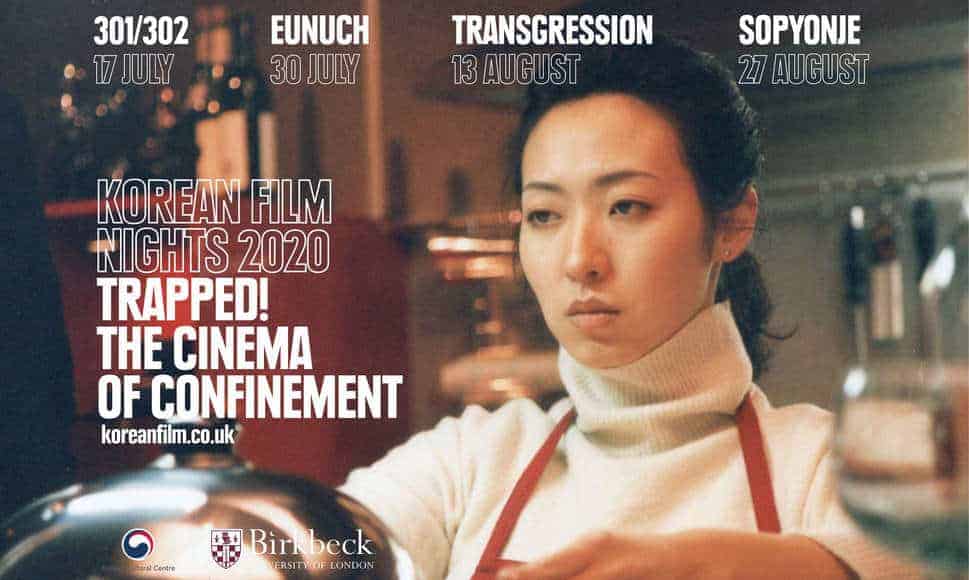
As a foreword intertitle and subsequent narration over the opening credits inform, separate from the Palace where the King performed his royal civil duties was Naejeon, his harem, which was completely off-limits for any man except the King himself. The harem housed the Queen, concubines and handmaidens, all of who preserved themselves for the King alone and were served by eunuchs, the keeper and servers of the King's women and secrets. When a new girl Ja-ok, the beautiful daughter of a minister, is accepted into the harem, problems arise in the form of Jong-ho, a man Ja-ok has given her heart and soul and promised to give her body to, and the King's lust for the beautiful woman. Jong-ho, himself a man forcefully neutered since his last meeting with Ja-ok months ago, comes secretly into Naejeon with a plan to free Ja-ok that doesn't quite go as planned.
“Eunuch”, while a romantic melodrama at heart, surprises by still being a rather dense work thematically, talking about several important issues pertaining to the period. Most obviously, it talks about the life and role expectations of women in the royal household. Even the women, including the Queen herself, were resigned to merely being bed partners and child-bearers for the King, vying to be selected to bed the King and undertaking religious rituals for the conception of a male child. The depiction of the women's plight once they reach an age where they can no longer satisfy the King, are no longer of child-bearing age or in some way displease the King and do not undertake their tasks is shocking, with even Queens of kings past not spared from such a sorry state.
Suppressed sexuality is also an interesting element of the narrative. With so many young, hot-blooded females in a closed-off area and just one man to satisfy only the ones he wishes to be with, naturally the repressed passions become difficult for the women to handle. This is very classily depicted in a scene in which the King has sex with a handmaiden in his room while Ja-ok and an older concubine Lady Min await outside the chamber, having not been selected for the night. The sounds emanating from inside the bedchambers arouse the latter, who reaches out to touch Ja-ok. Not just the ladies, but the way the eunuchs are shown to be helpless in such situations is also equally fascinating. Even if they do not have functioning apparatus to satisfy themselves, they are still susceptible to passionate thoughts. This is best seen in the moments when the King has sex with Ja-ok as Jong-ho and the Head Eunuch wait outside, with her pleading cries turning to pleasurable moans, clearly arousing the Head Eunuch and throwing Jong-ho into despair.
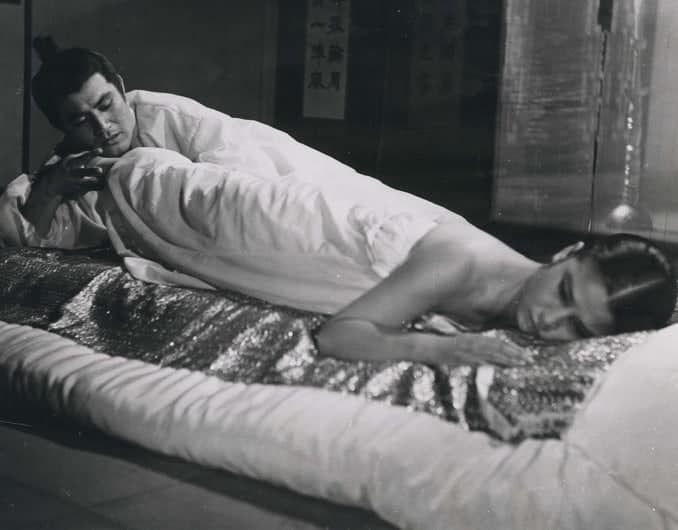
Most surprising, however, is the way the film touches the subject of homosexuality. The repressed feelings of these women require an outlet and Lady Min tries to find it in the recently-arrived Ja-ok in an early scene, much to the latter's repulsion. These advances also continue in the above-mentioned scene outside the bedroom. These depictions would go on to land Shin Sang-ok in trouble with prosecutors for “producing and distributing obscene material”. Greed, in a sense, also plays an important underlying part of the story, with almost every character greedy for something. The families of the women long for status and stability as they send their daughters to serve the King, him for his part is not content with having any woman he chooses and must own her heart as well as her body, while the two lovers long for freedom to be with each other even though their individual fates have clearly already been written apart.
Acting is adequate throughout. While heartthrob Shin Sung-il doesn't quite get sufficient screen-time in the first half, he excels in the melodramatic moments later, as Jong-ho rues his inability to provide Ja-ok with the same sexual satisfaction he heard the King provide her. Yoon Jeong-hee as the physically and mentally suffering Ja-ok is perfectly cast, her beauty only furthering her agonising state. Nam Koong-won as the King is at his royal best, but it is Park Nou-shik whose performance as the Head Eunuch ends up being the most nuanced and memorable, the changes in his character realised well by the actor
Another feature working in the favour of “Eunuch” is its sumptuous production design and cinematography. Chung Woo-taek's set design is gorgeous, particularly the interiors of the several chambers, including the King's bedchamber, while Choi Gyeung-su's costumes compliment the royal setting perfectly. All of these are lensed to perfection by cinematographer Choi Seung-woo, bringing out the colourful brilliance of the two. His use of sets and natural surroundings to denote the characters' plights is also worth noting, with even the vast palatial surroundings feelings almost claustrophobic and imprisoning for its residents as compared to the open natural scenery before and after their stay at the palace, which lacks in comforts but gives a peace to them they never knew in the palace. While there is no nudity throughout, the camera placements to show the passionate lovemaking scenes is remarkable. There even is an excellent sword-fight scene near the climax that would please fans of Japanese jidaigeki films.
The title “Eunuch” could well be seen as a bit misleading as it focuses more on the ladies of the house rather than the eunuchs serving them, but Shin Sang-ok's opus is nonetheless a very enjoyable melodrama with strong production values and an engaging story. The 95 minutes runtime flows by quite smoothly and quickly. The melodrama, it must be noted, might seem too heavy-handed to some viewers but is rather accurate for Korean cinema of the period. Ultimately, “Eunuch” occupies a place of importance in the director's long and respectable filmography.


